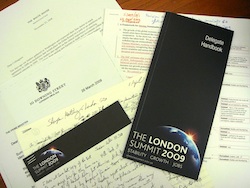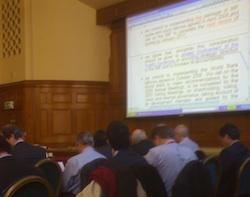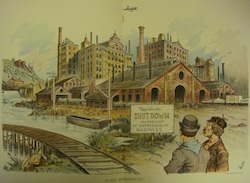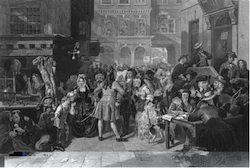Introduction

Diverse ephemeral archival material from the G20 summits

Final negotiations by civil servants ahead of
the London G20 Summit

"These works shut down" - cartoon from 1893

'The South-Sea bubble' - antique steel engraving, c.1870
The crisis that began in 2008 has been marked by its historical self-consciousness. Several of the protagonists explicitly invoked their knowledge about previous crises as the key to their 2008 actions. And historical analogies have shaped much of the subsequent discussion: Was 2008 more like 1929 or 1932? Or was the better analogy to Japan in the 1990s? What was the relevance of the Swedish model in solving a banking crisis? In these examples and others, history has been invoked as a key to understanding and responding to the present crisis.
Our discussion will be framed by three broad questions: What are the histories of previous crises? How were those histories invoked in the recent crisis? What sorts of information will be available to future historians as they seek to write the history of the present period of change? Throughout, our concern will be with how different analysts and scholars come to understand the economy, and with the sources of economic knowledge. Indeed, the current crisis seems to present acute problems of historical evidence: both the sheer volume of the evidence and its seeming evanescence -- power point presentations, electronic market updates, email correspondence, internet sites, etc. -- make it difficult to create a solid explanatory account (even of who knew what when).
Speakers will include Marcello De Cecco (Scuola Normale di Pisa), Luca Einaudi (Center for History and Economics, Harvard University), Thomas Ferguson (University of Massachusetts, Boston), Eric Helleiner (University of Waterloo), Robert A. Johnson (Institute for New Economic Thinking), Anna Paulson (Federal Reserve Bank of Chicago and MIT), Amartya Sen (Harvard University), and Adam Tooze (Yale University).
The poster for this workshop is available to download. Click on the poster image below to obtain the PDF.

